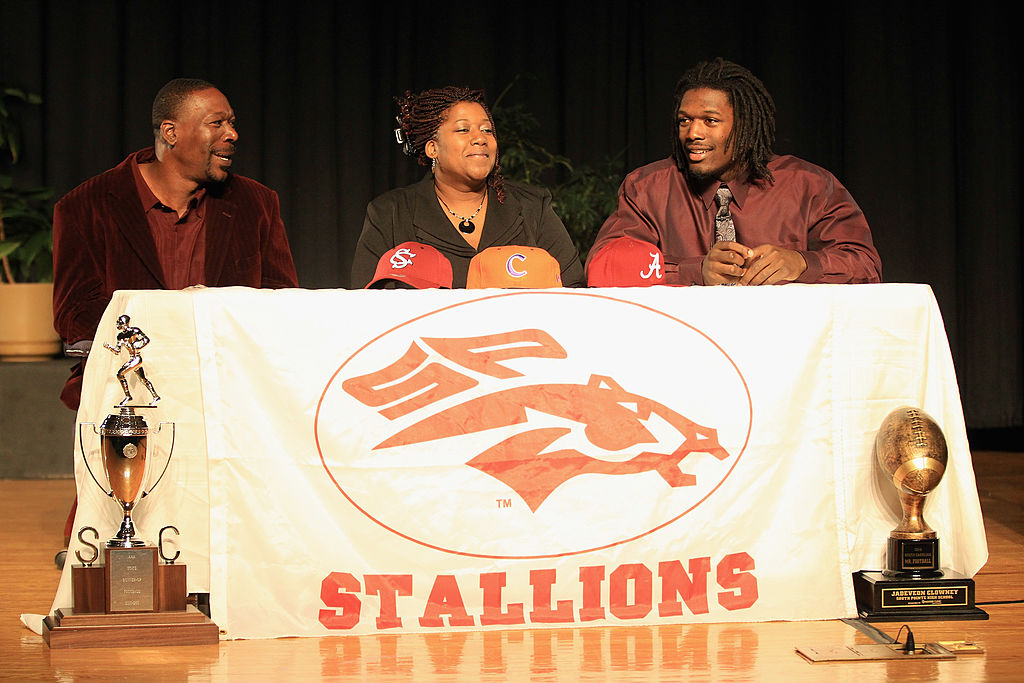The push for an earlier signing day in addition to the regularly scheduled signing day in football appears to be coming as soon as this year.
The NCAA’s Division 1 Council scrapped the idea of a signing period in the summer but gave its support for a December signing period that could be initiated as soon as this coming December.
A final vote on a December signing period must be approved by the Collegiate Commissioners Association, which sanctions the National Letter of Intent procedures. That vote will take place in April and appears to have the momentum to be pushed through. As with any potential change to the college football structure, there are mixed opinions on whether or not this is a wise move, although a December signing period has received the endorsement of the American Football Coaches Association, which appears to be a good sign for those hoping for an early signing period, although there are some coaches who still are opposed to an early signing period entirely.
The benefits of an early signing period can be felt by players and coaches. For players, it can bring an end to the recruiting process a little earlier, thus avoiding the craziness that happens in January after the dead period in recruiting is lifted leading up to signing day (the first Wednesday of February; Feb. 1 this year). A player can then focus on other responsibilities and enjoy their final months of high school a little bit more knowing they have everything locked down for college.
For coaches, an early signing period allows a coach to piece together part of a recruiting class and focus recruiting efforts on filling in other remaining pieces and give more attention to other key recruits they are hoping to land in the month of January and February. But the coaching side of this situation has a few negatives worth focusing on as well. For starters, and perhaps the big issue at hand, is potentially needing to spend more time during the season focusing on recruiting pitches than usual to land potential recruits in December. The fall is already a busy enough time anyway for coaches, especially if they are taking their team to a bowl game (which occupies a good amount of time in December, of course). If a mid-December signing period is added to the recruiting calendar, then coaches will have to split time from preparing for regular season and conference championship and bowl game sin order to fluff the egos of high school football players and their families. That is not ideal for the coaches.
The fear is this will lead some players to commit and be locked into a commitment too early, but it is likely the players who will choose to commit during an earlier signing period will be the ones who have been set on playing for one school since their freshman or sophomore year of high school. A kid dreaming of playing for USC and no other school will be the kind of kid choosing to lock himself into USC if he has an offer on the table. A kid deciding between Tennessee, Notre Dame, Georgia, Clemson, Alabama, Florida State, Michigan, and Oklahoma is not going to be likely to make his decision final in December.
There is one other concern for players who do sign in December though. What happens if a coach leaves that school after the player commits? Since December 10, 2016, nine coaches have been hired for a head coaching FBS job, with two being fired and a handful of others leaving previous jobs as either head coach or assistant coach. Two coaches (Tracy Claeys at Minnesota and Sonny Dykes at Cal) were fired since January 3, and one head coach (P.J. Fleck from Western Michigan to Wisconsin) left a head coaching job for another head coaching job. The simple solution would be to allow any player committing in December the opportunity to decommit in order to evaluate their options once again. This really should not be a hard decision to make, and it is so incredibly easy to do if the best interest of the student-athletes really is at the heart of this decision.
There will be plenty of opinions shared about an early signing period in the coming months as we approach a possible vote on this proposal, and you have to wonder just how the power conferences will land on the subject.






